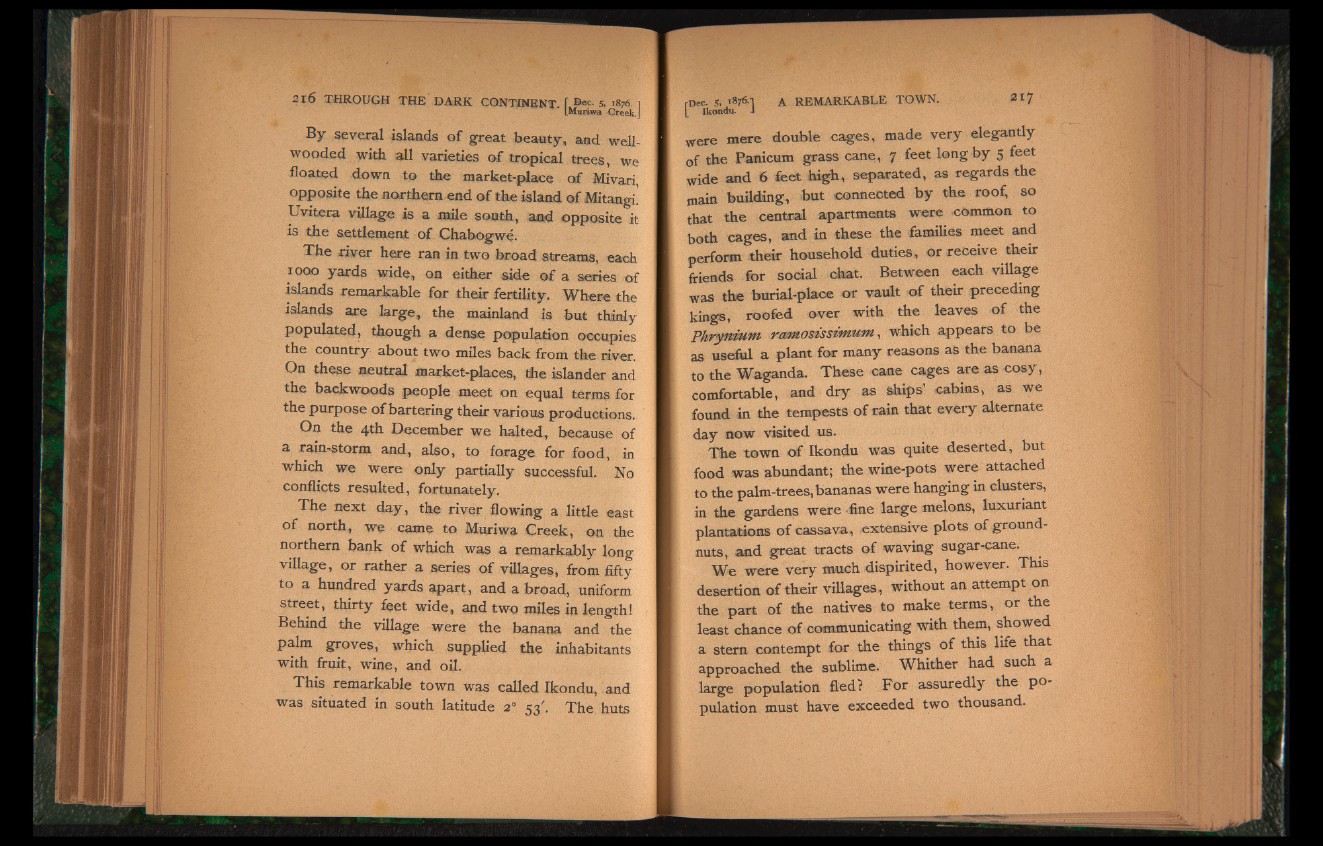
2x6 THROUGH THE DARK CONTINENT, f Bec- 5. '876. 1
■ I Muriwa Creek.j
By several islands of great beauty, and well-
wooded with all varieties of tropical trees, we
floated down to the market-place of Mivari
opposite the northern end of the island of Mitangi!
Uvitera village is a mile south, and opposite it
is the settlement of Chabogwe.
The river hare ran in two broad streams, each
1000 yards wide, on either side of a series of
islands remarkable for thesk fertility. Where the
islands are large, the mainland is but thinly
populated, though a dense population occupies
the country about two miles back from the river.
On these neutral market-places, the islander and
the backwoods people meet on equal terms for
the purpose of bartering their various productions.
On the 4th December we halted, because of
a rain-storm and, also, to forage for food, in
which we were only partially successful. No
conflicts resulted, fortunately.
The next day, the river flowing a little east
of north, we came to Muriwa Creek, on the
northern bank of which was a remarkably long
village, or rather a series of villages, from fifty
to a hundred yards apart, and a broad, uniform
street, thirty feet wide, and two miles in length!
Behind the village were the banana and the
palm groves, which supplied the inhabitants
with fruit, wine, and oil.
This remarkable town was called Ikondu, and
was situated in south latitude 20 53'. The huts
Were mere double cages, made very elegantly
of the Panicum grass cane, 7 feet long by 5 feet
wide and 6 feet high, separated, as regards the
main building, but connected by the roof, so
that the central apartments were common to
both cages, and in these the families meet and
perform their household duties, or receive their
friends for social chat. Between each village
was the burial-place or vault of their preceding
kings, roofed over with the leaves of the
Phrynium ramosissimum, which appears to be
as useful a plant for many reasons as the banana
to the Waganda. These cane cages are as cosy,
comfortable, and dry as ships’ cabins, as we
found in the tempests of rain that every alternate
day now visited us.
The town of Ikondu was quite deserted, but
food was abundant; the wine-pots were attached
to the palm-trees, bananas were hanging in clusters,
in the gardens were -fine large melons, luxuriant
plantations o f cassava, extensive plots o f groundnuts,
and great tracts of waving sugar-cane.
We were very much dispirited, however. This
desertion of their villages, without an attempt on
the part of the natives to make terms, or the
least chance of communicating with them, showed
a stern contempt for the things of this life that
approached the sublime. Whither had such a
large population fled? For assuredly the population
must have exceeded two thousand.